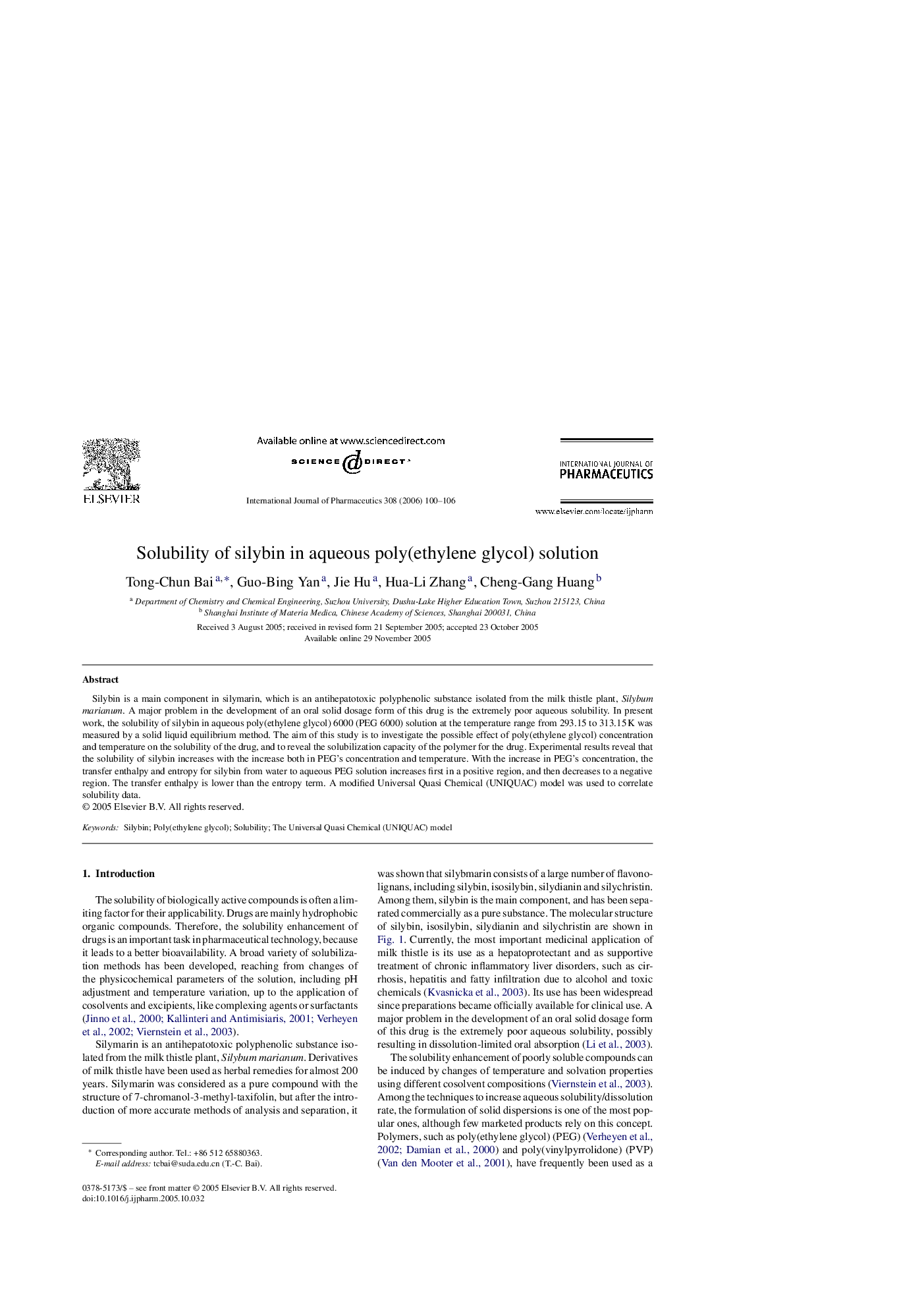| Article ID | Journal | Published Year | Pages | File Type |
|---|---|---|---|---|
| 2507167 | International Journal of Pharmaceutics | 2006 | 7 Pages |
Silybin is a main component in silymarin, which is an antihepatotoxic polyphenolic substance isolated from the milk thistle plant, Silybum marianum. A major problem in the development of an oral solid dosage form of this drug is the extremely poor aqueous solubility. In present work, the solubility of silybin in aqueous poly(ethylene glycol) 6000 (PEG 6000) solution at the temperature range from 293.15 to 313.15 K was measured by a solid liquid equilibrium method. The aim of this study is to investigate the possible effect of poly(ethylene glycol) concentration and temperature on the solubility of the drug, and to reveal the solubilization capacity of the polymer for the drug. Experimental results reveal that the solubility of silybin increases with the increase both in PEG's concentration and temperature. With the increase in PEG's concentration, the transfer enthalpy and entropy for silybin from water to aqueous PEG solution increases first in a positive region, and then decreases to a negative region. The transfer enthalpy is lower than the entropy term. A modified Universal Quasi Chemical (UNIQUAC) model was used to correlate solubility data.
